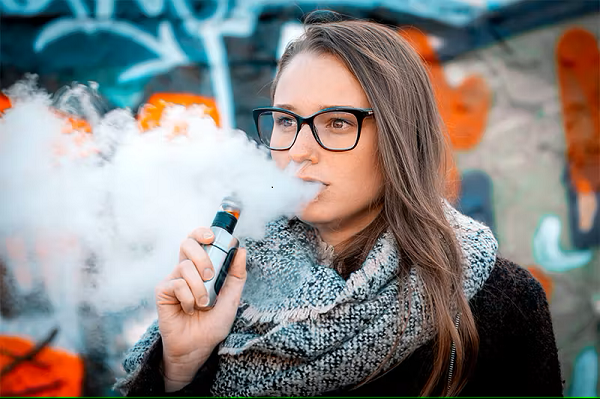| Section | Link to Section |
|---|---|
| Vape Retailers | Charged Vape Retailers Intend To Challenge The Law. |
| Appeal Of Vaping | Reducing The Appeal Of Vaping Might Be Against The Constitution. |
A defense attorney for vape businesses accused of selling flavored goods in the Canadian province of New Brunswick has said that he intends to file a constitutional challenge against the state's 2021 ban on flavored vapes.
Federal and provincial legislation in Canada are vulnerable to challenge if they do not comply with the country's Constitution, which includes the Charter of Rights and Freedoms. Although it hasn't been tried in court, the idea of challenging Canadian flavor bans based on human rights has been floated previously.
Charged Vape Retailers Intend To Challenge The Law.
According to the Fredericton Independent, an online news source based in the provincial capital of Fredericton, criminal defense attorney Adrian Forsythe entered a not-guilty plea on behalf of New Brunswick retailer East Coast Vape last week and stated he would file “a notice of constitutional challenge” in the case.
East Coast Vape is accused of breaking the Tobacco and Electronic Cigarette Sales Act of New Brunswick by selling flavored goods at its Oromocto location in December. In provincial court last week, Forsythe also submitted a not-guilty plea on behalf of Vapecity Enterprises, which was also accused of breaking the 2021 rule.
Forsythe told the Independent that he plans to use the same defense for other clients that his legal business, Gorham Vandebeek LLP, represents who have been accused of breaking the same law. According to the Independent, all of the cases involving defendants represented by Gorham Vandebeek have been postponed until May 3 in order to schedule trial dates.
Reducing The Appeal Of Vaping Might Be Against The Constitution.
In 2020, the Canadian Constitution Foundation published a research outlining potential constitutional objections to Canada's vaping laws. Because they lessen the usefulness of vaping as a harm reduction tool, taste bans and nicotine dosage limits may be in violation of the Charter, according to the author, Dr. Leonid Sirota, a law professor at the Auckland University of Technology Law School.
Sirota stated, "These laws are intended to shield nonsmokers from vaping, which is potentially hazardous in and of itself and, worse, a potential gateway to smoking." "Yet, it poses a significant risk of harm to smokers who are currently in the habit, as vaping can be a valuable and frequently the most successful method of harm reduction for them."
Reducing the allure of vaping for smokers, according to Sirota, may infringe upon the right guaranteed by section 7 of the Charter not to be deprived of one's life, liberty, or personal security.
According to the Fredericton Independent, a civil challenge (unrelated to the cases mentioned above) was filed in 2021 contesting New Brunswick's taste restriction on those grounds. While the matter is being debated and a trial date has not yet been set, the plaintiffs in that complaint were unable to persuade the court to give an injunction.
There are currently five active taste restrictions in Canada.
In 2021, New Brunswick outlawed the sale of flavored vaping goods, except tobacco taste. Similar prohibitions are in effect in three additional provinces or territories: the Northwest Territories, Prince Edward Island, and Nova Scotia. A ban was enacted in Nunavut, although it hasn't been put into effect yet.
The second-most populous province in Canada, Quebec, released proposed regulations this week outlawing vaping items without tobacco flavors. If the provincial health ministry is persuaded to change its mind after a public consultation, the guidelines will go into effect ninety days after they are published.
Only adult-only establishments, such as vape shops, are permitted to sell flavored goods in British Columbia, Ontario, and Saskatchewan.






